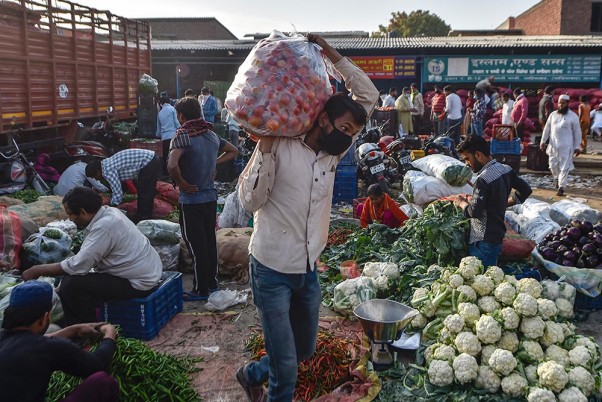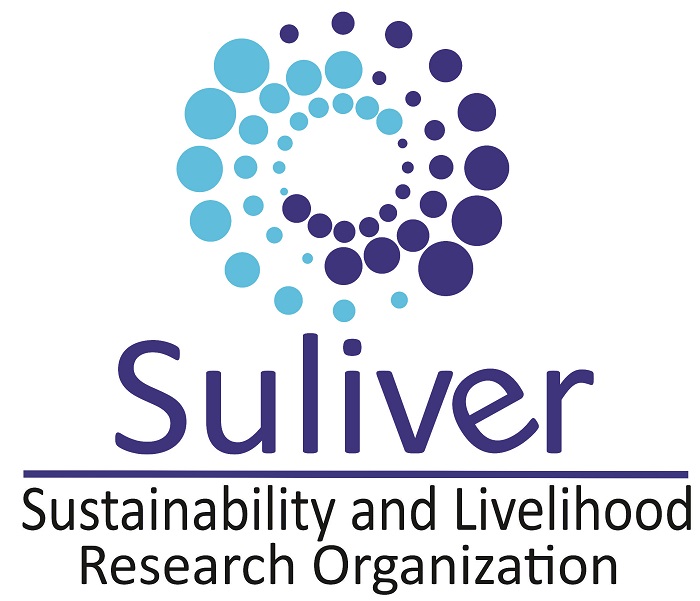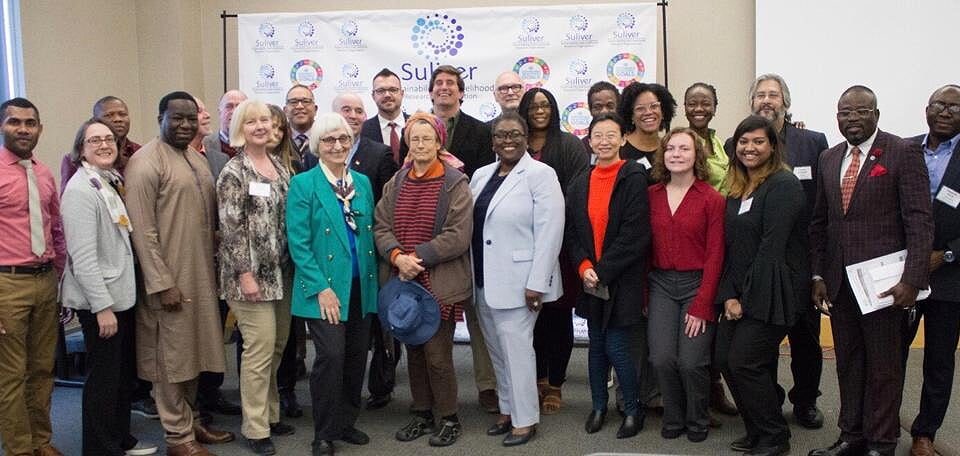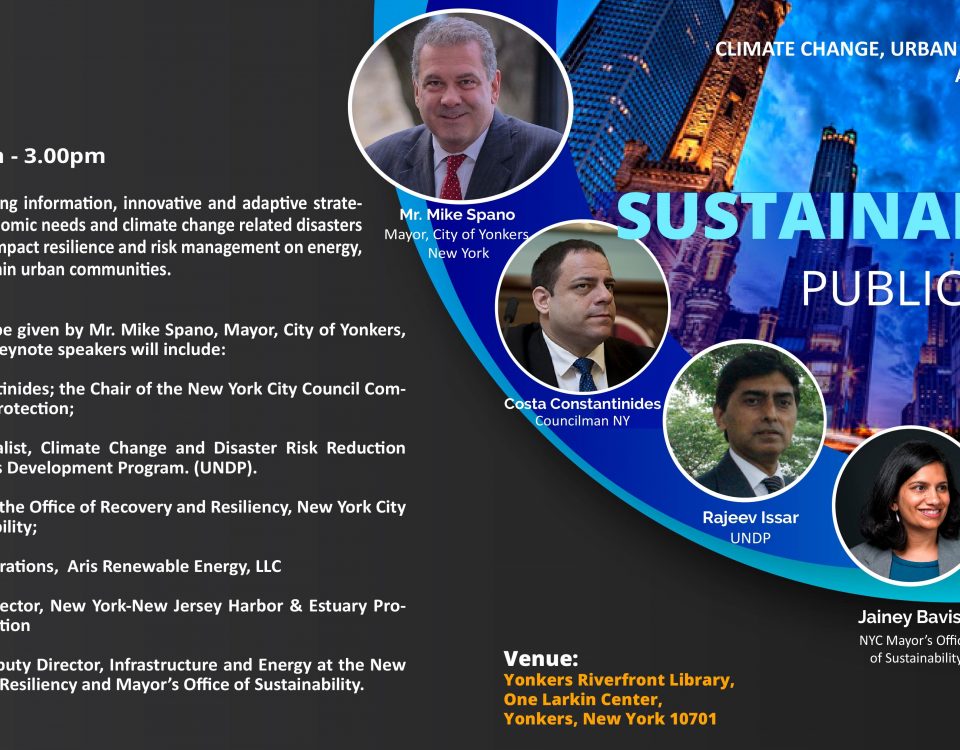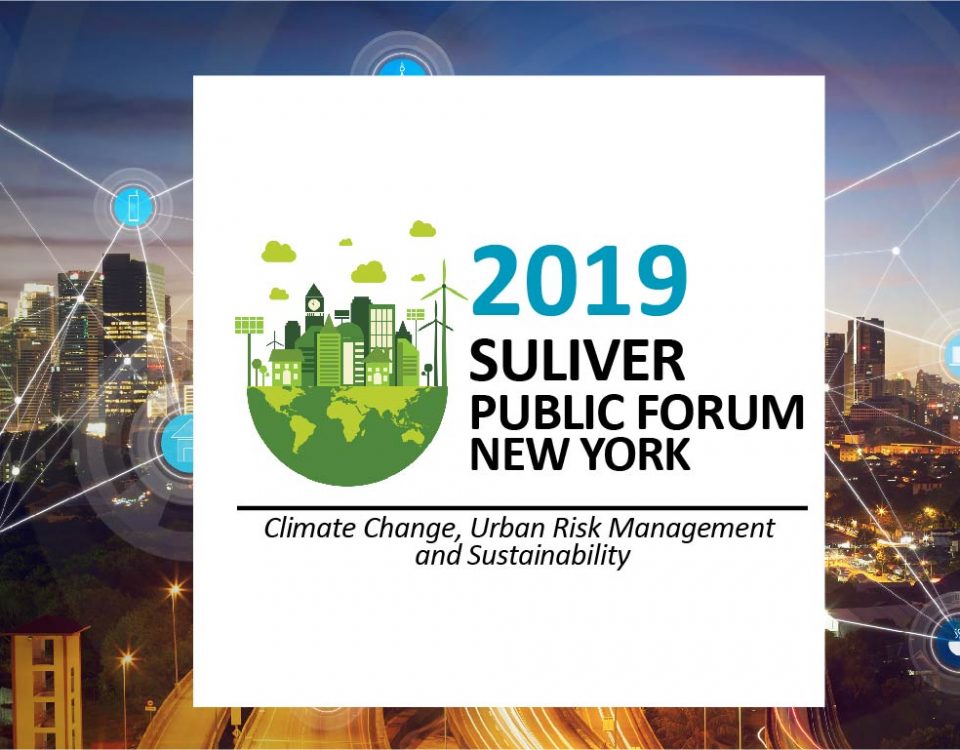
2019 Suliver Public Forum NY
November 23, 2019
From Ebola to Coronavirus: Maintaining Sustainable Livelihoods
How do we reduce the vulnerability of poor households in low-income countries to Coronavirus shocks? The outbreak of the coronavirus (COVID-19) comes on the heels of the second-deadliest Ebola virus disease (EVD) in the Democratic Republic of Congo (DRC). The coronavirus is both a major health crisis and a big shock to livelihoods across the world. As the DRC recovers from Ebola, some lessons can be drawn from this epidemic to enhance sustainable livelihoods in the post- coronavirus period. The Coronavirus negatively affects livelihood assets of communities, that are already insecure. These assets include seasonal and daily economic activities that poor households are engaged in. For instance, many people in low-income countries live in neighborhoods where they visit markets on a daily basis for exchange of goods, especially basic food items. To this end, households in these communities are vulnerable to the impacts of COVID-19 because their livelihoods depend primarily on local agriculture and other strategies of survival. Consequently, the Coronavirus narrows the livelihood options of the poor.
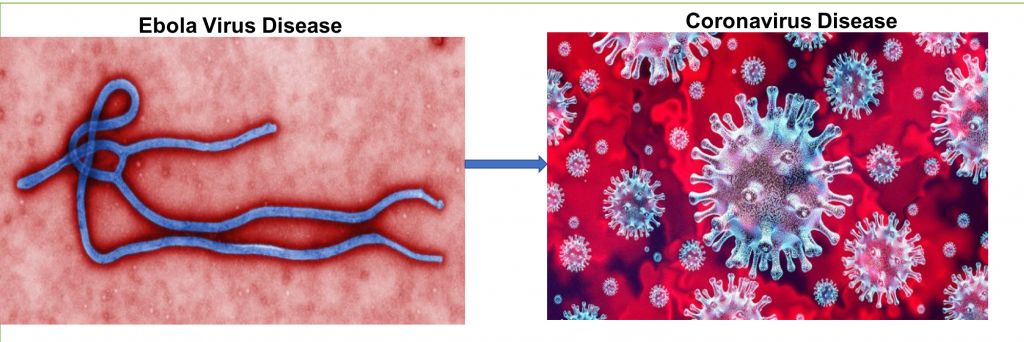
Therefore, rebuilding livelihoods after the pandemic will depend mainly on current policies aimed at recovery and regaining livelihood assets. These assets include seasonal and daily economic activities that poor households are engaged in, such as farming, raising and selling livestock, basic education for the children, and being able to make necessary savings. These strategies involve crisis mitigation as well enabling policies, institutions and processes that will ensure positive livelihood outcomes. The recent Ebola epidemic in Africa presents some lessons on how to maintain sustainable livelihoods among vulnerable communities in a post-pandemic future. The 2014 -2016 Ebola outbreak claimed 11,300 lives, especially in Sierra Leone, Liberia, and Guinea, while the current outbreak in Congo had infected 3,456 people with more than 2,276 fatalities.

The Coronavirus (COVID-19) came to the limelight on December 31, 2019, in the city of Wuhan, China.
According to the European Center for Disease Control (ECDC), the Municipal Health and Health Commission in the city reported a cluster of pneumonia cases of unknown etiology with a common source of exposure at Wuhan’s South China Seafood City market. Further investigations identified a novel coronavirus as the causative agent of the respiratory symptoms for these cases. The COVID-19 outbreak has rapidly evolved, rapidly spreading from China to over 180 countries around the world in less than three months, making it a Public Health Emergency of International Concern (PHEIC). With over 1.7 million total confirmed cases and 102,781 total fatalities around the world, the outbreak of the Coronavirus would have socio-economic shocks of historical proportions around the world. The pandemic is making life more difficult in many low-income countries, especially those recovering from the Ebola outbreak with minimal health infrastructures. Communities in these countries face many limitations, including a shortage of funding, ongoing insecurity, population displacement, lack of access to some areas, and a limited number of healthcare workers, and resources amidst other local and global emergencies. These are livelihood challenges that require urgent attention to contain the spread and treat COVOD-19 patients.
The Ebola outbreak in Africa enabled the establishment of some institutional capacity and skeletal health facilities to fight the epidemic. In essence, the epicenters of the recent Ebola outbreak (i.e., DRC, Guinea, Liberia, and Sierra Leone), can draw on their experiences to handle the current Coronavirus outbreak. While the two diseases differ in terms of their cure and etiology, experts have advised that surveillance and contact tracing, social distancing and isolation are effective in containing the spread of both diseases. But more importantly, the Ebola disease taught African countries a painful but valuable lesson that may be instrumental in the fight against the coronavirus. As exemplified in many countries, reducing the spread of the virus by banning public gathering and closing schools is key to its control. The epicenters of the recent Ebola outbreak would benefit from screening procedures and hand-washing stations in public places as strategies to curb the spread of COVID-19. Besides, the Ebola virus killed a large proportion of healthcare workers in Africa. Likewise, healthcare workers are in the frontline in the fight against the coronavirus, and many of them have fallen victims. It is, therefore, crucial to protect healthcare workers by providing them with necessary personal protective equipment (PPE) such as gloves, gowns, and masks.
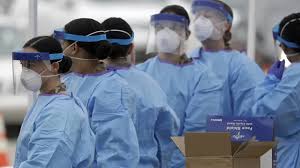
Therefore, rich countries should restrain from stockpiling PPE, thereby preventing low-income countries from getting such necessities in this time of crisis. As the Ebola disease gets under control, low-income countries should repurpose resources, especially the military, and other resources used in the fight against Ebola for the fight against the Coronavirus.
Finally, countries should begin to plan for post-coronavirus recovery during the crisis. Recovery plans will include mapping out the economic and social impacts of the outbreak in specific sectors and among vulnerable communities in each country. Fortunately, many rich countries have the financial capacity to embark on such planning immediately. For instance, the U.S Congress has passed a multitrillion-dollar Coronavirus stimulus package, which was promptly signed into law by the president. This policy will stimulate the economy by putting money in the hands of low-income taxpayers and businesses. Sustained spending in the economy will cushion the disruptive impacts of the Coronavirus outbreak in the livelihoods of American communities. Unfortunately, many low-income countries around the world do not have such capacity as the U.S to plan for COVID-19 recovery. This situation jeopardizes the fragile livelihoods in such emerging countries. To this end, multilateral aid agencies such as the UN agencies, the World Bank, and the International Monetary Fund (IMF) should step in to assist these developing countries with economic recovery initiatives. Such initiatives will help to enhance institutional entry points that supports the livelihood strategies of poor household and build resilience in vulnerable communities and maintain economic and social sustainability.
